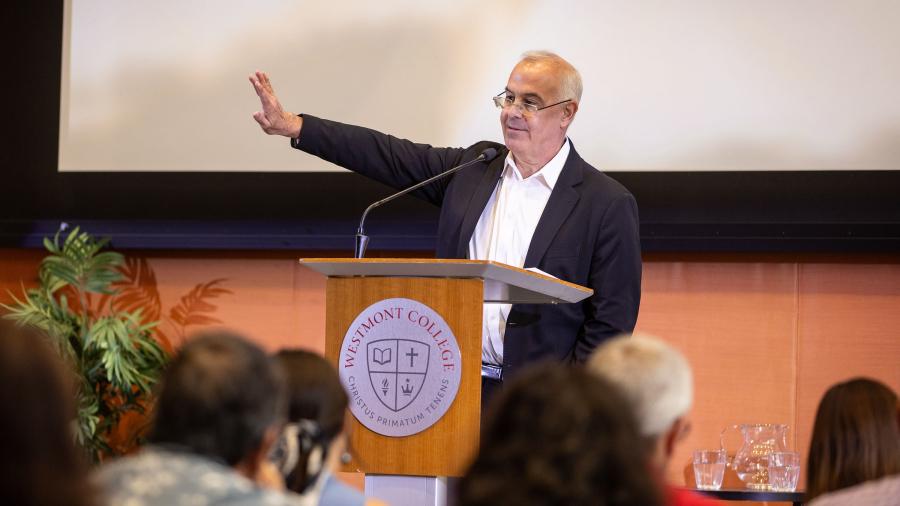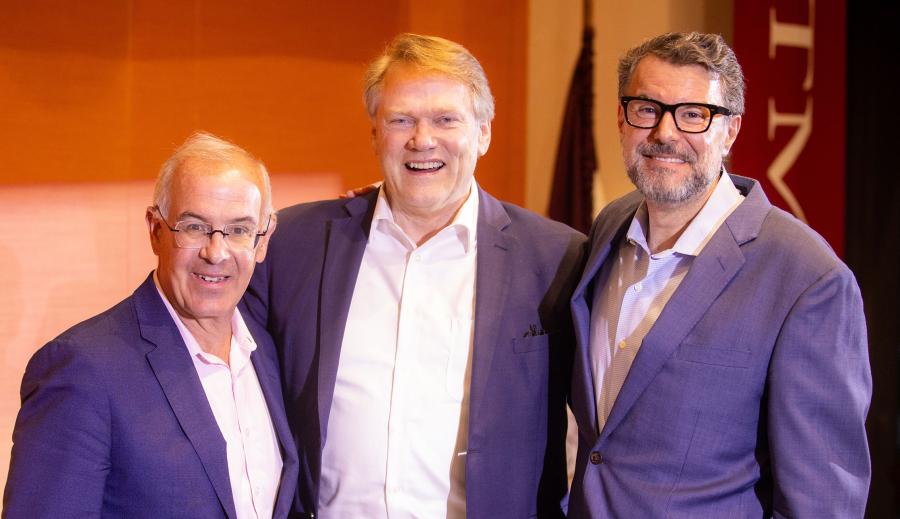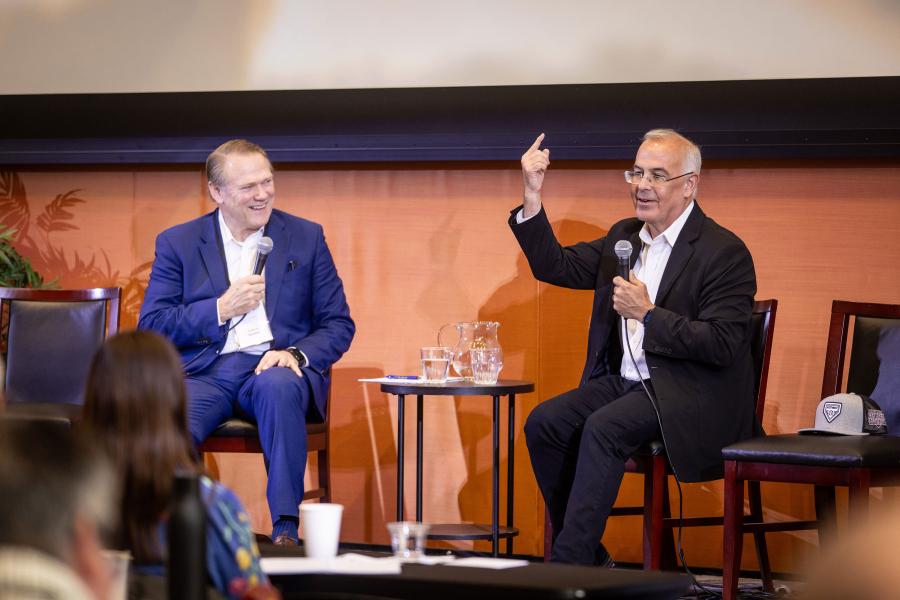Westmont News
Brooks Praises Ethos of Christian Colleges

By
Scott Craig
New York Times columnist David Brooks, citing rising mental health issues, social distrust and loneliness, examined the moral decline in America and suggested that Christian colleges can contribute to the “re-moralization” of American life. He delivered the keynote talk, “How Christian Colleges Can Fix What Ails America,” at the 11th annual LEAD Where Your Stand conference June 5 in Westmont’s Global Leadership Center.

“Our moral life is in tatters,” he said. “I think you can see that from the spiritual and relational problem facing America.”
Brooks examined the failure of the Enlightenment in the 18th century, the privatization of morality that followed and then higher education’s shift in the 19th century from social ideals to intelligence.
“We’ve created a system that prioritizes intelligence and doesn’t teach or cultivate the whole student, their heart and soul,” he said. “It’s way more important to be a good person than to be smart.”
He said the problem centers around the belief that society can divide and sort people based on the SAT test they took when they were 18. “That's a weird way to organize your society,” he said. “It’s easy to give people a test and measure them, but it doesn’t measure the things that really matter. When I look at Christian colleges like Westmont, I think you have what society wants.”
Brooks argued for a more holistic definition of talent and praised colleges that provide students with a moral framework. “What Christian colleges can do is orient you around the heart,” he said. “Christian colleges introduce us to qualities of intensity, of depth of emotion, of the longing of the heart and soul.”

He examined the history of moral formation, which used to focus on forming souls. Brooks preferred a description by J. F. Roxburgh, a 19th century Scottish schoolmaster and author, who said his goal was to graduate students who “were acceptable at a dance and invaluable in a shipwreck.”
Brooks expressed gratitude for his professors who introduced him to his intellectual heroes: Alexander Hamilton, Edmund Burke, Saint Augustine and Iris Murdoch. “I know how to live my life because I know what this chorus would say,” he said. “Giving students that is a tremendous gift.”
Finally, he stressed the importance of teaching basic moral skills such as how to be considerate in the concrete circumstances of life. “How do you sit with someone who’s grieving or depressed?” Brooks asked. “How do you ask for forgiveness?”
He shared the story of one of his students who told him she’d had four boyfriends, but they all ghosted her. “No one taught those young men (A) they need to have a breakup conversation, or (B) how to do it — and I don't exempt myself from these,” he said.
In fact, he admitted that he struggled as a young adult to politely and gracefully end a conversation. “No one ever taught me,” he said. “I was at my fifth high school reunion, and my only move was to say, ‘I’m going to go to the bar and get another drink.’ So, I’m 20 minutes into the reunion, and I’m so drunk I have to leave because that's my only way to get out of a conversation at a cocktail party.”
While our institutions focus on sorting, segregating and rejecting, Christian colleges embrace an ethos, a set of moral principles and traditions that can educate the heart, mind and souls of students, he notes.
Brooks, author of New York Times Bestsellers “The Road to Character” and “The Second Mountain: The Quest for a Moral Life,’ first spoke at Westmont Commencement in 2015. He returned for the President’s Breakfast in 2016 and began speaking annually at LEAD Where You Stand in 2018.